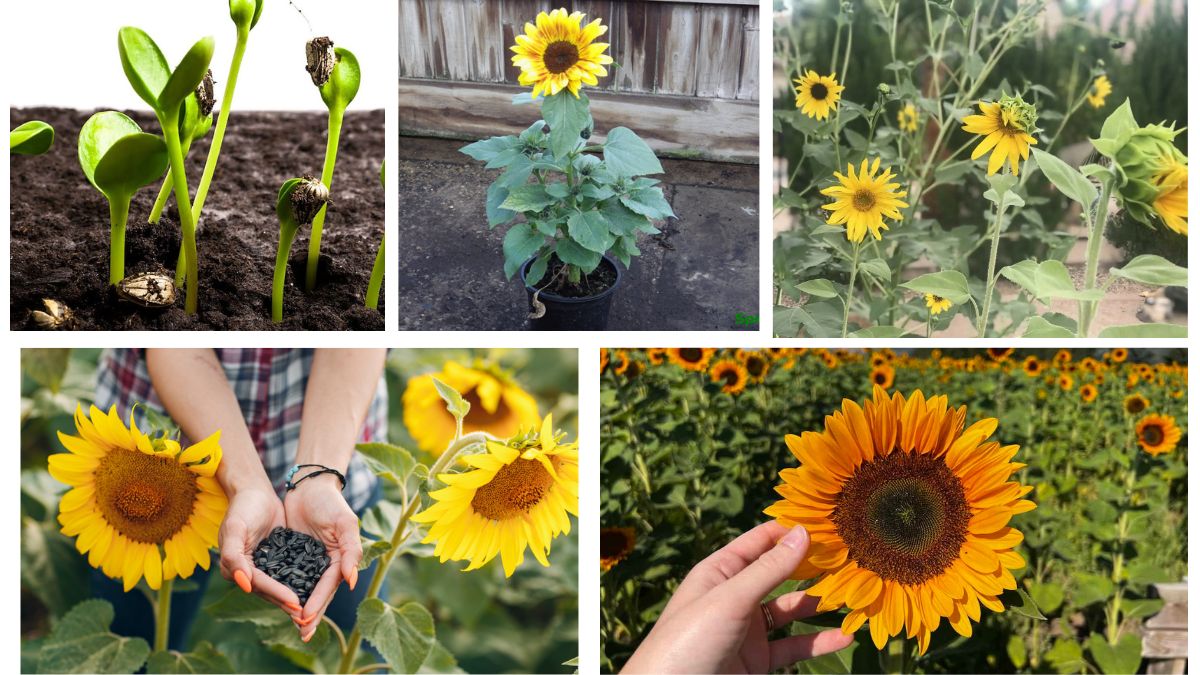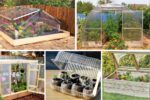Sunflowers are among the most cheerful and iconic garden plants, celebrated for their towering stems, radiant yellow blooms, and ability to track the sun across the sky. Beyond their aesthetic charm, sunflowers also serve practical purposes — attracting pollinators, providing edible seeds, and acting as natural privacy screens. For gardeners and farmers alike, a crucial aspect of successfully growing sunflowers is understanding their germination process.
So, how long do sunflower seeds take to germinate? The answer isn’t only a matter of days but depends on several environmental factors like soil temperature, moisture, and seed quality. In this comprehensive article, we’ll cover the typical germination timeline, factors affecting seed sprouting, optimal growing conditions, and expert tips for promoting strong, healthy seedlings.
What Is Germination?
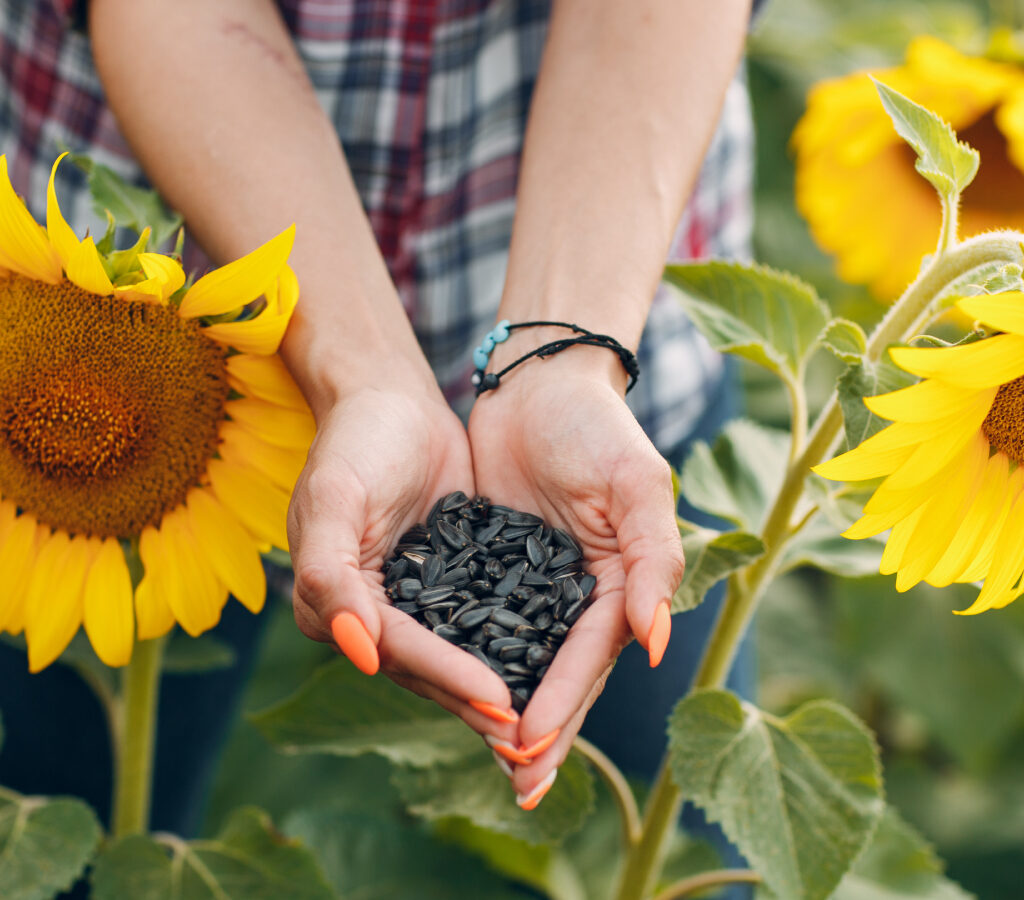
Germination is the biological process through which a seed develops into a new plant. It begins when a viable seed absorbs water, swells, and breaks its outer coat, allowing the embryonic root (radicle) to emerge. This is followed by the shoot (plumule), which pushes upward toward the soil surface. The time it takes for this process varies between plant species and is influenced by growing conditions.
For sunflowers, germination is typically fast and reliable when conditions are favorable.
How Long Do Sunflower Seeds Take to Germinate?
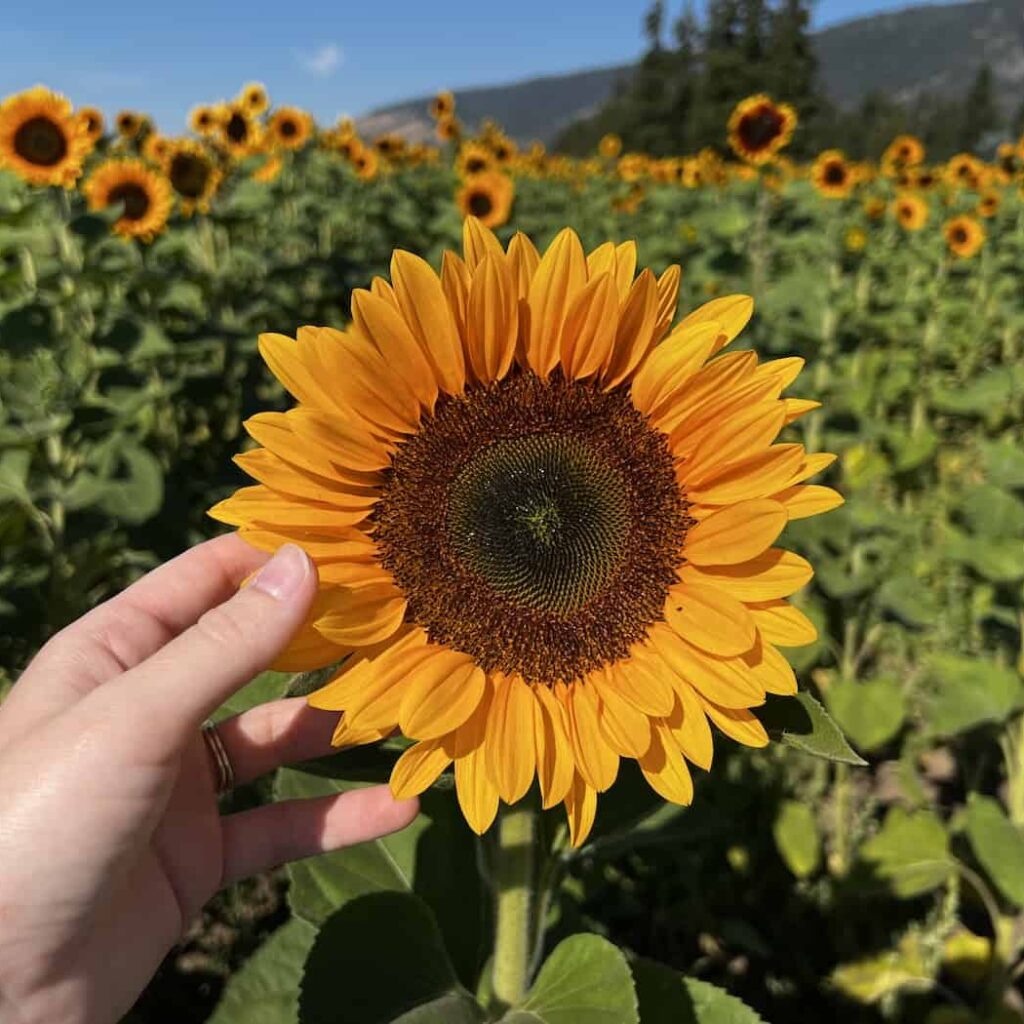
Under ideal conditions, sunflower seeds usually take 7 to 10 days to germinate.
In warmer soils (around 70°F to 85°F / 21°C to 29°C), germination can occur in as little as 5 to 7 days. In cooler temperatures or suboptimal environments, it may take up to 14 days.
Quick breakdown:
- Warm soil (70–85°F): 5–7 days
- Moderate soil (60–70°F): 7–10 days
- Cool soil (50–60°F): 10–14 days
Factors Affecting Sunflower Seed Germination
While sunflower seeds are relatively easy to germinate, several factors influence how quickly and successfully they sprout:
1. Soil Temperature
Temperature is the single most important factor for germination speed. Sunflowers germinate best when the soil temperature is between 70°F and 85°F (21°C to 29°C). Colder soil slows metabolic processes, delaying germination, while excessively hot soil can damage the seed embryo.
2. Soil Moisture
Sunflower seeds require consistent moisture to germinate but are prone to rot in overly wet or waterlogged soil. The seedbed should be kept evenly moist, not soaked.
3. Soil Type and Structure
Loose, well-draining soil allows for optimal oxygen flow and easy root penetration. Heavy, compacted, or clay soils can impede root development and delay or prevent germination.
4. Seed Quality
Fresh, high-quality seeds germinate faster and more reliably than old or poorly stored seeds. Always purchase from reputable suppliers and check the packaging for the current season’s date.
5. Depth of Planting
Planting seeds too deeply can slow germination. The ideal planting depth for sunflower seeds is 1 to 1.5 inches (2.5 to 3.8 cm).
6. Light Conditions
While sunlight isn’t necessary during germination (as seeds germinate underground), sunflowers are fast-growing, light-loving plants that will thrive once their shoots emerge and access full sun.
Step-by-Step: How to Germinate Sunflower Seeds Successfully
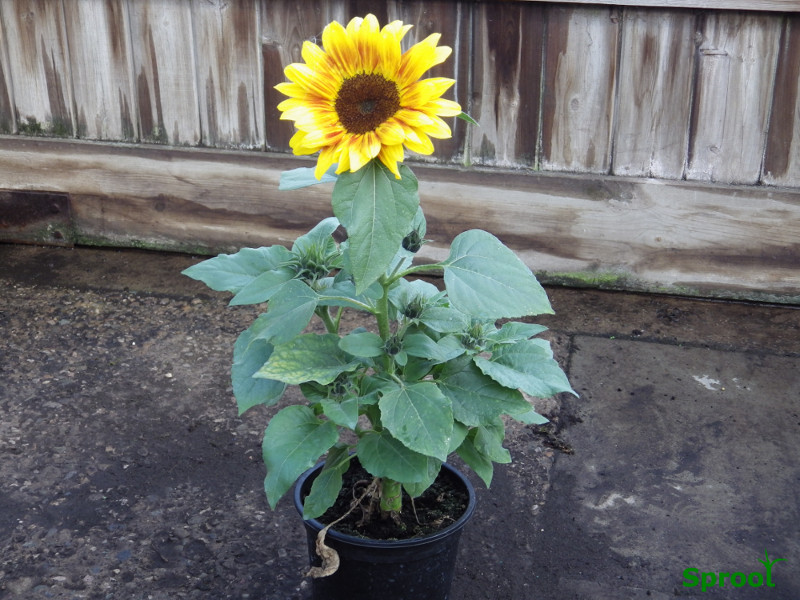
To maximize germination speed and success, follow these guidelines:
1. Choose the Right Location
Select a sunny, open space with at least 6 to 8 hours of direct sunlight daily.
2. Prepare the Soil
- Loosen soil to a depth of 8–12 inches (20–30 cm).
- Remove rocks and debris.
- Mix in compost or organic matter for better soil structure and nutrients.
3. Sow the Seeds
- Plant seeds 1 to 1.5 inches deep.
- Space seeds 6 to 12 inches apart for smaller varieties and 18 to 24 inches for tall, giant sunflowers.
4. Water Properly
- Water the soil immediately after planting.
- Maintain consistent soil moisture without waterlogging.
5. Monitor Soil Temperature
Use a soil thermometer to ensure temperatures stay within the ideal range for fast germination.
6. Protect Seedlings
Cover freshly sown areas with lightweight netting if birds or rodents are a concern.
Can You Start Sunflower Seeds Indoors?
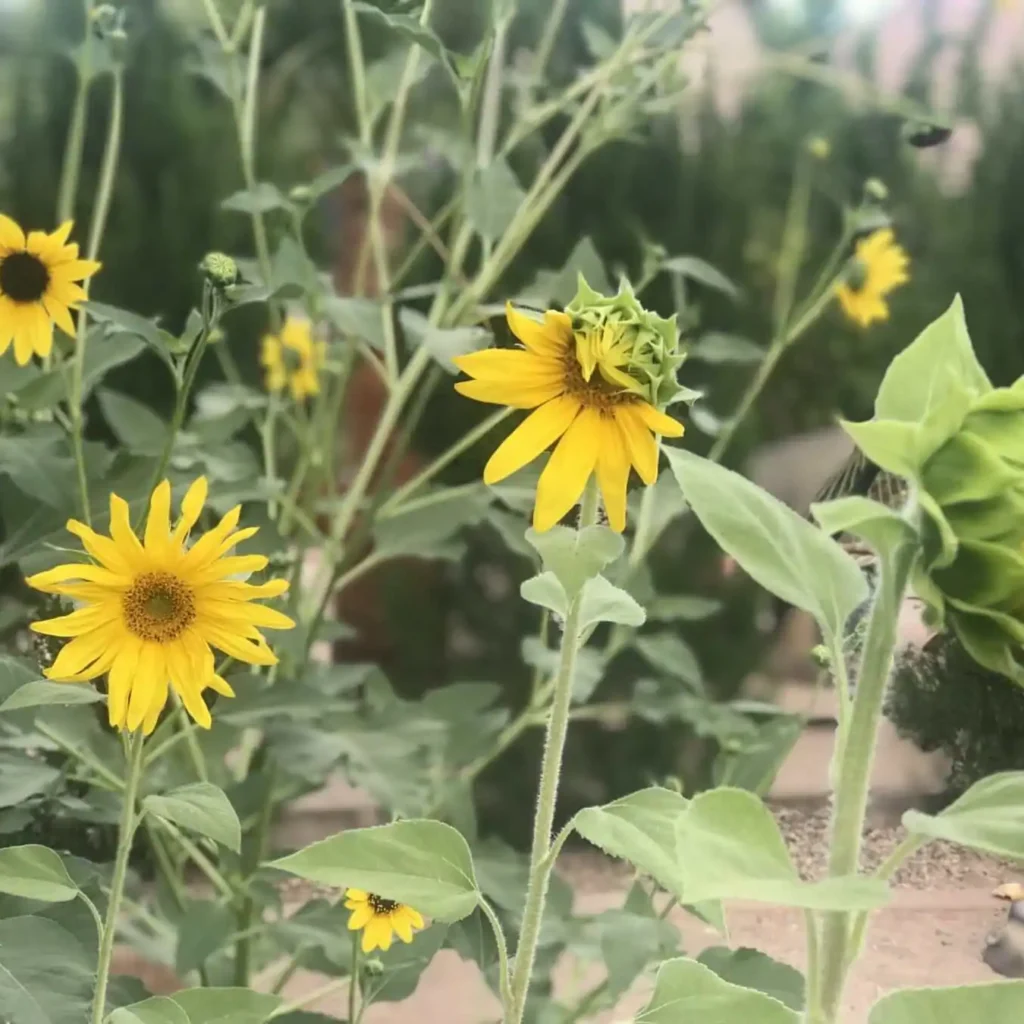
Yes — you can start sunflower seeds indoors 2 to 3 weeks before the last expected frost.
- Use biodegradable pots or seed trays filled with a seed-starting mix.
- Maintain a temperature of 70°F to 80°F (21°C to 27°C).
- Keep soil moist but not saturated.
- Transplant seedlings outdoors once they have two sets of true leaves and danger of frost has passed.
Note: Because sunflowers develop deep taproots, they prefer being sown directly in the ground, and indoor starting is best reserved for short-season climates.
Signs of Successful Germination
Within a week (in warm soil), you’ll notice:
- Tiny green shoots breaking the soil’s surface.
- Healthy, plump seedlings standing upright.
- The appearance of the first set of leaves (cotyledons).
Once the cotyledons fully open, the seedling begins photosynthesis and rapidly develops true leaves, indicating a healthy start.
Common Germination Problems and Solutions
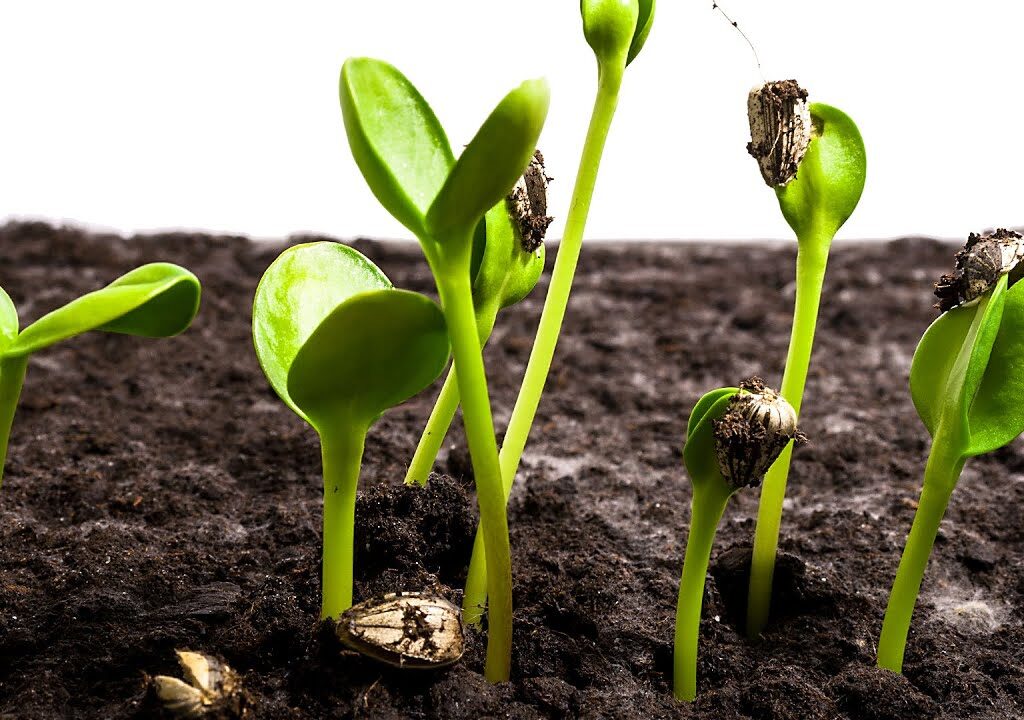
| Problem | Cause | Solution |
|---|---|---|
| No sprouting after 14 days | Cold soil, old seeds, waterlogged soil | Check soil temperature, replace seeds, improve drainage |
| Seeds rot before sprouting | Overwatering or poor drainage | Keep soil moist but not wet, use well-draining soil |
| Seedlings fall over (damping-off) | Fungal disease from excess moisture | Water less, increase airflow, use sterile soil |
| Patchy or uneven germination | Variable soil depth or inconsistent moisture | Re-sow missing spots, maintain even watering and planting depth |
When to Transplant or Thin Sunflower Seedlings
Once seedlings are 2 to 3 inches tall and have developed a pair of true leaves:
- Thin out weaker seedlings to prevent overcrowding.
- Maintain final spacing of 6–12 inches for smaller sunflowers and 18–24 inches for giant varieties.
Thinning ensures each plant has sufficient space, sunlight, and resources for optimal growth.
Germination Timeline Summary
| Days After Planting | Activity |
|---|---|
| Day 0 | Sow seeds into moist, warm soil |
| Days 5–7 (warm conditions) | First signs of sprouting |
| Days 7–10 | Cotyledons emerge above soil |
| Days 10–14 | First true leaves develop |
Conclusion
In ideal conditions, sunflower seeds germinate within 7 to 10 days, though warmer soils can speed this to just 5 days. Ensuring the right soil temperature, consistent moisture, and proper planting depth are crucial for quick, successful sprouting.
By understanding the germination timeline and how to optimize growing conditions, gardeners can enjoy a vibrant display of towering sunflowers and harvest a bounty of nutritious seeds. Whether grown for ornamental beauty, wildlife attraction, or culinary uses, sunflowers offer one of the most rewarding planting experiences in the garden.
